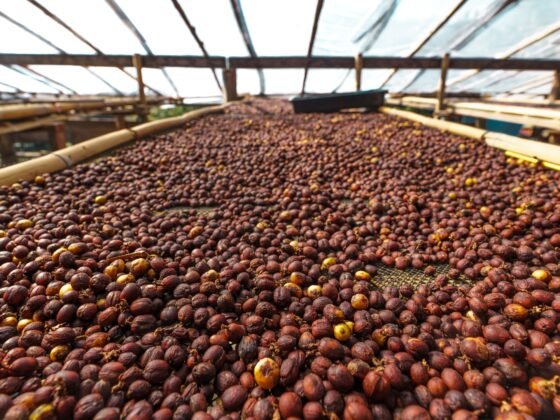Coffee and tea stand as two of the most beloved beverages around the globe, each with its own legion of devotees. At the heart of breakfast tables, afternoon breaks, and evening wind-downs, they offer more than just a caffeine fix; they are vessels of culture, history, and health benefits. This article embarks on a journey through the intricacies of coffee compared to tea, from their origins and cultural significance to their impacts on health and lifestyle.
Coffee: The Energizing Elixir
Coffee, a powerhouse of energy and warmth, originates from the lush regions of Ethiopia. It boasts a rich history of social gatherings, intellectual discussions, and, of course, its wakeful benefits. The beverage has permeated cultures worldwide, adapting to countless variations—from the robust Italian espresso to the creamy, sweet Vietnamese coffee.
Health Benefits and Concerns
Coffee’s most lauded attribute is its high caffeine content, which stimulates the central nervous system, improving alertness and energy levels. Studies have linked moderate coffee consumption to various health benefits, including a reduced risk of type 2 diabetes, liver diseases, and even neurological conditions like Parkinson’s disease. However, its high caffeine content can also lead to sleep disturbances and increased anxiety in sensitive individuals.
Flavor Profile and Preparation
The flavor of coffee is as varied as its preparation methods, ranging from bitter and intense to smooth and sweet. The brewing technique plays a crucial role in its taste, with methods like French press, espresso, and cold brew each offering unique flavor profiles.
Tea: The Soothing Sip
Tea’s origins trace back to ancient China, where it was revered as a medicinal drink before its evolution into the daily pleasure it is today. Unlike coffee, tea offers a wide spectrum of varieties—black, green, white, oolong, and herbal—each with its own processing method, flavor, and health benefits.
Health Benefits and Concerns
Tea is celebrated for its antioxidants, particularly catechins in green tea, which have been shown to reduce inflammation and lower the risk of certain chronic diseases, including heart disease and cancer. Additionally, tea consumption is associated with a calming effect, thanks to the amino acid L-theanine, which can improve mental focus while relaxing the mind. However, excessive consumption of certain teas can lead to issues like fluoride or oxalate accumulation, which may affect bone strength and kidney health, respectively.
Flavor Profile and Preparation
The flavor of tea can range from the strong, malty notes of black tea to the delicate, floral undertones of white tea. The preparation of tea is an art in itself, with the temperature and steeping time critically influencing the final taste.
Cultural Significance and Social Aspects
Coffee Culture
Coffee culture is synonymous with bustling cafes and social interactions. It has given rise to phenomena like the Italian “caffè sospeso” tradition and the Swedish “fika”—a coffee break meant for relaxation and conversation.
Tea Culture
Tea culture, on the other hand, is often associated with tranquility and mindfulness, epitomized by the Japanese tea ceremony, which is as much about aesthetics and hospitality as it is about tea.
Sustainability and Environmental Impact
Both coffee and tea production have faced criticism for environmental and ethical concerns, including deforestation, water usage, and labor practices. However, there is a growing movement towards sustainable and fair-trade practices in both industries, aiming to minimize their environmental footprint and improve conditions for workers.
Personal Preferences and Lifestyle Considerations
Choosing between coffee and tea often boils down to personal preference and lifestyle considerations. While coffee may be the go-to choice for a morning energy boost, tea could be favored for its calming properties and lower caffeine content.
Conclusion
The debate between coffee and tea is as rich and complex as the beverages themselves. Both offer unique health benefits, flavors, and cultural significances, making them irreplaceable in the hearts of their enthusiasts. Whether you’re a coffee aficionado or a tea devotee, the most important thing is to enjoy your beverage of choice in moderation, savoring each sip and the moments they create.
FAQs
How does the caffeine content compare between coffee and tea?
Coffee generally has a higher caffeine content than tea, with the amount varying depending on the type of coffee or tea and the preparation method.
Can drinking coffee or tea help with weight loss?
Both beverages have been associated with metabolic benefits that may aid in weight loss, but they should not be relied upon as sole methods for weight management.
Are there any risks associated with consuming too much coffee or tea?
Excessive consumption of either beverage can lead to negative health effects, such as anxiety and sleep disturbances for coffee, or fluoride accumulation for tea.
Which is healthier, coffee or tea?
Both coffee and tea have their own health benefits and potential concerns. The choice between them should be based on personal health, preferences, and lifestyle.
How do brewing methods affect the flavor and health benefits of coffee and tea?
The brewing method can significantly impact both the flavor and the concentration of health-promoting compounds in coffee and tea, highlighting the importance of preparation techniques.
Can coffee and tea consumption impact sleep?
Yes, due to their caffeine content, consuming coffee or tea, especially in the late afternoon or evening, can disrupt sleep patterns for some people.






